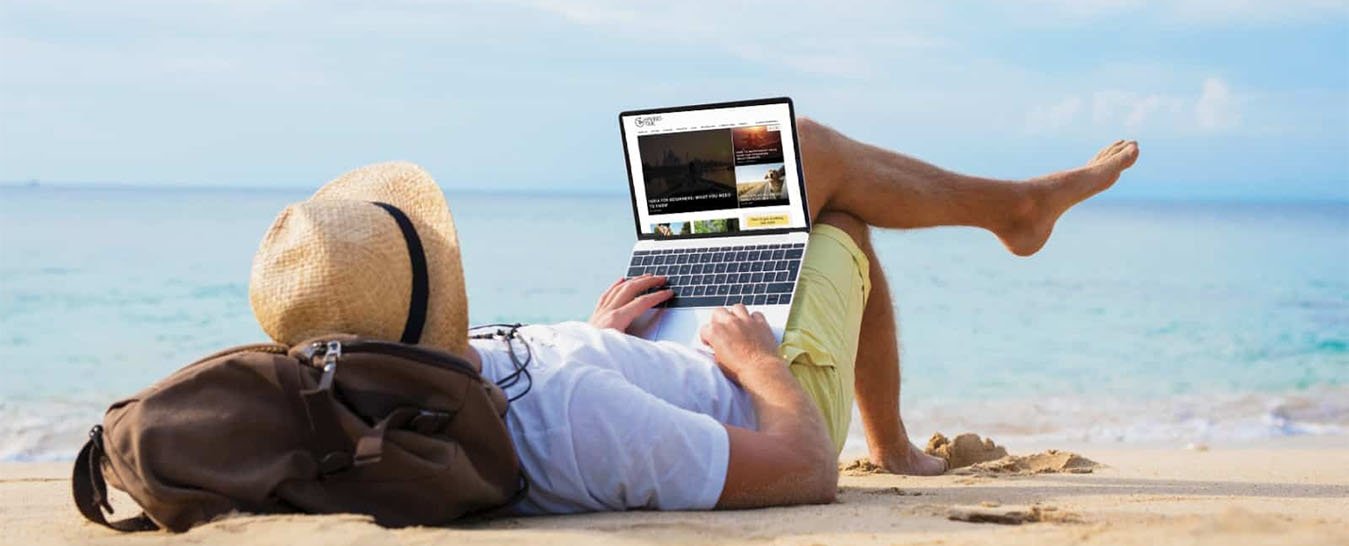Vacations are meant to be relaxing and restorative, but let’s face it – planning a trip can sometimes feel more stressful than rewarding. Between booking flights, packing and planning activities, things can quickly spiral out of control. But with the right approach, you can make your next vacation truly stress-free. Here are some practical tips to ensure your vacation is as relaxing as it should be.
- 1. Start planning early
- 2. Set a realistic budget
- 3. Choose the right destination
- 4. Book your accommodations wisely
- 5. Pack smart
- 6. Plan your itinerary, but stay flexible
- 7. Consider travel insurance
- 8. Stay healthy while traveling
- 9. Disconnect and be present
- 10. Prepare for the unexpected
- 11. Don't overthink the details
- 12. Include everyone in the planning
- 13. Leave room for downtime
- 14. Reflect on your trip
- Conclusion
1. Start planning early
One of the biggest causes of vacation stress is last-minute planning. Start preparing well in advance to avoid unnecessary pressure. Make a checklist of the things you need to do, like booking accommodation, buying tickets and researching your destination. By breaking these tasks down, you’ll avoid feeling overwhelmed.
Pro tip: Use travel planning apps or online tools to organize your itinerary and keep track of deadlines for bookings and payments.

2. Set a realistic budget
Financial worries can ruin any vacation. Set a realistic budget that covers all aspects of your trip, including travel, accommodations, meals, activities, and souvenirs. Be sure to plan a buffer for unexpected expenses.
Example budget breakdown:
Flights: $500
Accommodation: $700
Food: $300
Activities: $200
Other: $100
Having a clear financial plan will help you relax knowing you won’t overspend.
3. Choose the right destination
Choose a destination that fits the type of vacation you want. If you’re looking for peace and quiet, a busy city may not be the best choice. Consider factors like weather, activities, and travel restrictions to make sure the destination fits your goals.
Examples of destinations depending on your mood:
Relaxation: Bali, Maldives, or a quiet mountain retreat.
Adventure: New Zealand, Patagonia, or Costa Rica.
Culture: Kyoto, Paris, or Istanbul.
4. Book your accommodations wisely
Your accommodations can make a big difference to your vacation experience. Whether you prefer a luxury hotel, a cozy Airbnb, or an all-inclusive resort, make sure they offer the amenities you need to feel comfortable. Read reviews, check locations, and compare prices before making your choice.
Pro tip: Look for accommodations with flexible cancellation policies to avoid losing money if plans change unexpectedly.
5. Pack smart
Overpacking can cause unnecessary stress during travel. Create a packing list tailored to your destination’s weather and planned activities. Bring essential travel items like chargers, toiletries and a first aid kit, but avoid filling your suitcase with things you want to take “just in case.”
Essentials checklist:
Travel documents (passport, tickets, IDs)
Weather-appropriate clothing
Comfortable shoes
Medications
Reusable water bottle
Travel snacks

6. Plan your itinerary, but stay flexible
An itinerary can help you make the most of your trip, but if you overload your schedule, it can feel like work. Choose one or two big activities per day and leave time for rest breaks. Flexibility allows you to adjust if something doesn’t go as planned.
Sample beach vacation itinerary:
Morning: Relax on the beach
Afternoon: Visit a local market or tourist attraction
Evening: Enjoy a seafood dinner at a beachfront restaurant
7. Consider travel insurance
While it’s not the most exciting part of planning, travel insurance can give you peace of mind. It covers unexpected events like flight cancellations, lost luggage, or medical emergencies. Knowing you’re protected means you can enjoy your trip without worrying about what could go wrong.
8. Stay healthy while traveling
If you get sick during your vacation, it can ruin the experience. Prioritize your health by staying hydrated, eating balanced meals, and getting enough sleep. If you’re traveling to a different time zone, start adjusting your sleep schedule a few days before you leave.
Other healthy living tips:
Bring hand sanitizer and disinfectant wipes with you.
Avoid overeating or consuming too many exotic foods at once.
Use sunscreen when spending time outdoors.
9. Disconnect and be present
In today’s digital age, it’s tempting to stay connected to work or social media even when on vacation. Make a conscious effort to disconnect and focus on the moment. Put your phone on airplane mode or limit your screen time to really disconnect and recharge.
Activities that help you stay present:
Journal your experiences
Take leisurely walks without your phone
Practice mindfulness or meditation

10. Prepare for the unexpected
Even with the best planning, things can go wrong. Flights get delayed, the weather changes, and plans fall through. Instead of panicking, prepare for these possibilities by staying flexible and maintaining a positive attitude.
Tips for dealing with unexpected situations:
Think of a backup activity or destination.
Bring a power bank for emergencies.
Keep digital copies of important documents like IDs and tickets.
11. Don't overthink the details
Vacations are about enjoyment, not perfection. Focus on the experiences and memories instead of getting upset over little things. If something doesn’t go as planned, laugh about it and move on. After all, the best stories often come from unplanned adventures.
12. Include everyone in the planning
If you’re traveling with family or friends, include them in the planning process. This will ensure everyone’s preferences are taken into account and reduce potential conflicts during the trip.
Ideas for planning together:
Create a group chat to discuss ideas.
Use shared documents to plan itineraries.
Assign roles, such as one person handling bookings and another managing activities.
13. Leave room for downtime
Sometimes the unplanned moments are the most relaxing. Take time to lounge by the pool, enjoy a leisurely meal, or just do nothing. These breaks will make your vacation more restful.
14. Reflect on your trip
At the end of your vacation, take time to reflect on your experience. Write down your favorite moments, what you learned, and any funny or memorable stories. This will help you preserve the memories and provide insights for future trips.
Conclusion
Planning a stress-free vacation is all about preparation, flexibility, and a positive attitude. By following these tips, you’ll be well on your way to a relaxing vacation that leaves you refreshed and re-energized. Remember, the goal of a vacation is not to check off a to-do list, but to enjoy meaningful moments and create lasting memories.
So go ahead – start planning your next stress-free vacation and get ready to relax!

